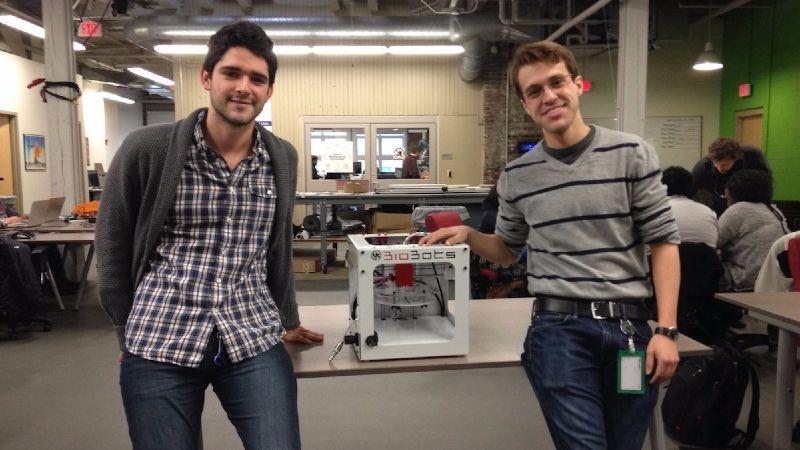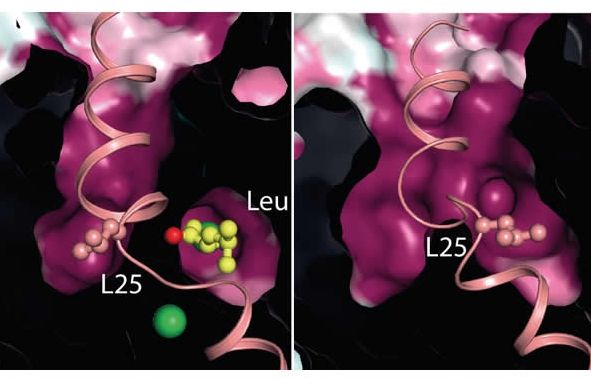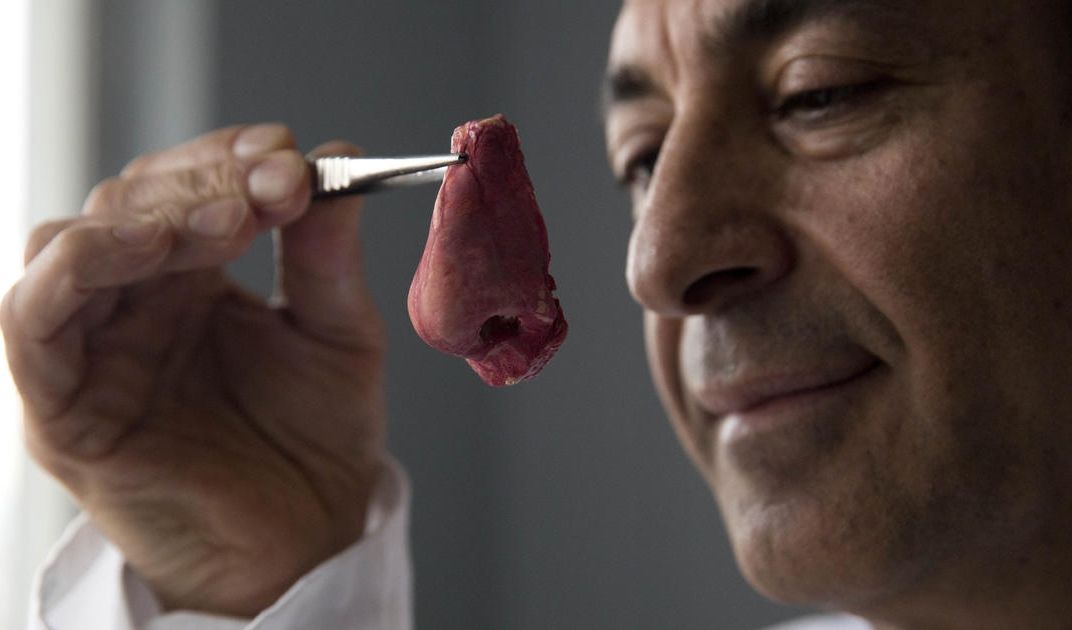Page 11492
May 29, 2016
Meet the startups 3D printing living cells, editing genes and growing meat in laboratories
Posted by Bruno Henrique de Souza in categories: 3D printing, biological, cybercrime/malcode, food
Hacking o ser humano: a startups de impressão 3D de células vivas, edição de genes e de carne crescente em laboratórios.
May 29, 2016
NASA inflates spare room in space
Posted by Karen Hurst in categories: 3D printing, habitats, robotics/AI, space
With 3D printers (like the one in India) printing buildings while leveraging AI technology we could see the building of complexes in space v. needing an inflatable room.
NASA on Saturday successfully expanded and pressurized an add-on room at the International Space Station two days after aborting the first attempt when it ran into problems.
The flexible habitat, known as the Bigelow Expandable Activity Module (BEAM), completed slowly extending 67 inches (170 centimeters) at 4:10 pm (2010 GMT) following more than seven hours during which astronaut Jeff Williams released short blasts of air into the pod’s walls from the orbiting lab using a manual valve.
May 29, 2016
New discovery from the molecular machinery for depression and addiction
Posted by Bruno Henrique de Souza in categories: biotech/medical, neuroscience
When nerve cells have to communicate with each other in our brains, it involves release of neurotransmitters acting as messengers at neural synapses. Here the released neurotransmitter is bound and registered by receptors at the surface of the receiving nerve cell. This will, in turn, trigger a signal which is sent on to other nerve cells. The circuits in the brain using the neurotransmitters noradrenaline, dopamine, GABA and serotonin are known to play an important role in mood, reward and mental well-being, and they also have a key role to in mental disorders such as addiction and depression.
After release of neurotransmitters between nerve cells, they must, however, be removed again to end the signal. This is done by a family of transport proteins which function as molecular vacuum cleaners in the cell membrane of the nerve cell where they pump the neurotransmitter back into the nerve cell for later reuse. This transport is of great importance to the signaling between the nerve cells, but happens relatively slowly. A collaborative project between researchers from Aarhus University has made it possible to explain what happens in the crucial rate-limiting step in the transport process for neurotransmitters such as serotonin, noradrenaline, GABA and dopamine which are all transported by related proteins with the same mechanism.
Continue reading “New discovery from the molecular machinery for depression and addiction” »
May 29, 2016
Automating DNA origami opens door to many new uses
Posted by Bruno Henrique de Souza in categories: biotech/medical, information science
MIT biological engineers have developed an algorithm for building DNA nanoparticles automatically, paving the way to many more applications for “DNA origami.”
May 29, 2016
It took just 17 days to create world’s first 3D office in Dubai [video]
Posted by Karen Hurst in categories: 3D printing, robotics/AI
Awesome.
The 3D-printed office was constructed using a special mixture of cement and a set of building material designed and made in the UAE and the United States. To ensure reliability, the materials have undergone a range of tests in both China and the United Kingdom.
A 3D-printer measuring 20-feet high, 120-feet long and 40-feet wide was used to print the building that featured an automated robotic arm to implement printing process.
Continue reading “It took just 17 days to create world’s first 3D office in Dubai [video]” »
May 29, 2016
Space beamed energy bootstrapping video
Posted by Klaus Baldauf in categories: energy, space
This video animation was created for SunSat Design Competition, held by National Space Society. Concept: Keith Henson.
1000 × 15 ton skylon payloads.
Continue reading “Space beamed energy bootstrapping video” »
May 29, 2016
U.S. Army using Michigan interstate to test driverless vehicle tech
Posted by Dan Kummer in categories: engineering, military, robotics/AI
LAPEER COUNTY, MI – U.S. Army convoys are set to roll down the interstate in Lapeer and St. Clair counties as part of a first-time testing of driverless military vehicle equipment on public roadways in the state.
If successful, officials say the technology that may save the lives of soldiers thousands of miles away.
Representatives from the U.S. Army Tank Automotive Research Development and Engineering Center, or TARDEC, and Michigan Department of Transportation met with residents in Imlay City and Capac on May 23 to discuss the testing scheduled for late June along Interstate 69.
Continue reading “U.S. Army using Michigan interstate to test driverless vehicle tech” »
May 29, 2016
Toyota is closing in on a deal to buy Google’s robotics company Boston Dynamics, and the ‘ink is nearly dry’
Posted by Dan Kummer in categories: business, military, robotics/AI
One misstep after another for Boston Dynamics. First they get bought by the bunglers at Google, who dont want to do business with the Pentagon, so they buy a company who almost exclusively works for the Pentagon, and now getting sold to a foreign electronics company.
Pretty sad treatment for the company making some of the best robotics in the world. It should be sold to a US defense contractor.
Google is selling off robotics company Boston Dynamics, and Toyota is a serious contender.
May 29, 2016
Ears, noses grown from stem cells in lab dishes
Posted by Shailesh Prasad in categories: biotech/medical, futurism
In a north London hospital, scientists are growing noses, ears and blood vessels in the laboratory in a bold attempt to make body parts using stem cells.
It is among several labs around the world, including in the U.S., that are working on the futuristic idea of growing custom-made organs in the lab.

















